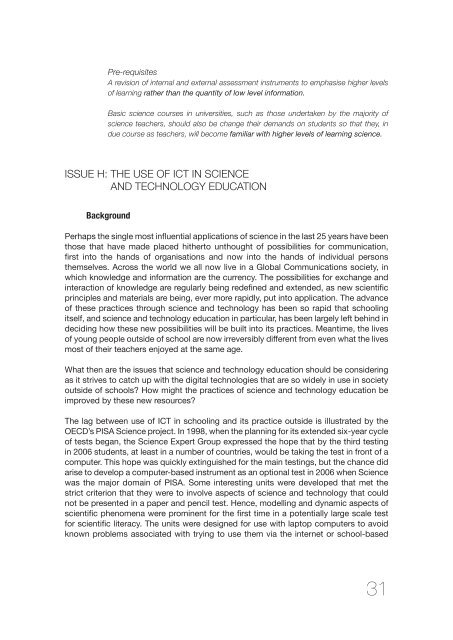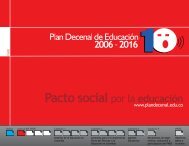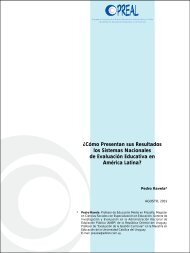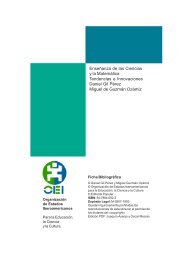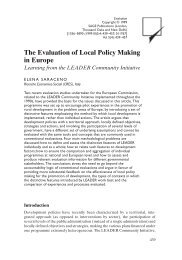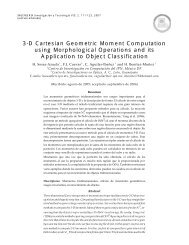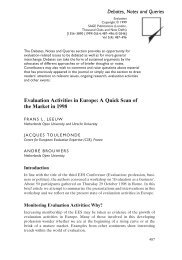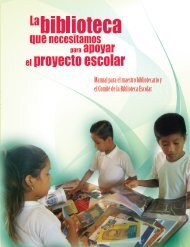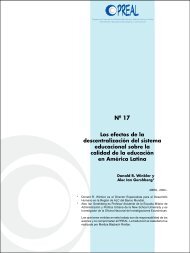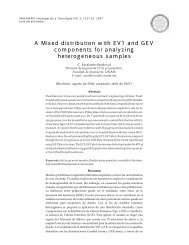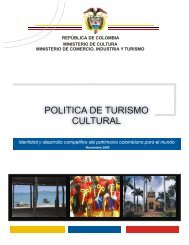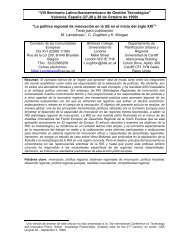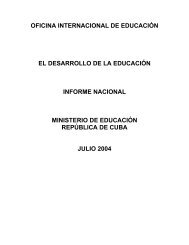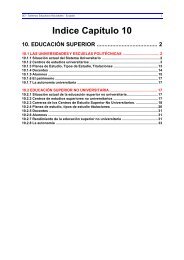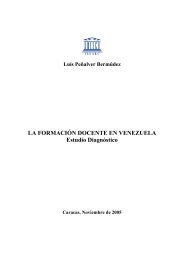Science education policy-making: eleven emerging issues; 2008 - OEI
Science education policy-making: eleven emerging issues; 2008 - OEI
Science education policy-making: eleven emerging issues; 2008 - OEI
Create successful ePaper yourself
Turn your PDF publications into a flip-book with our unique Google optimized e-Paper software.
Pre-requisites<br />
A revision of internal and external assessment instruments to emphasise higher levels<br />
of learning rather than the quantity of low level information.<br />
Basic science courses in universities, such as those undertaken by the majority of<br />
science teachers, should also be change their demands on students so that they, in<br />
due course as teachers, will become familiar with higher levels of learning science.<br />
ISSUE H: THE USE OF ICT IN SCIENCE<br />
AND TECHNOLOGY EDUCATION<br />
Background<br />
Perhaps the single most influential applications of science in the last 25 years have been<br />
those that have made placed hitherto unthought of possibilities for communication,<br />
first into the hands of organisations and now into the hands of individual persons<br />
themselves. Across the world we all now live in a Global Communications society, in<br />
which knowledge and information are the currency. The possibilities for exchange and<br />
interaction of knowledge are regularly being redefined and extended, as new scientific<br />
principles and materials are being, ever more rapidly, put into application. The advance<br />
of these practices through science and technology has been so rapid that schooling<br />
itself, and science and technology <strong>education</strong> in particular, has been largely left behind in<br />
deciding how these new possibilities will be built into its practices. Meantime, the lives<br />
of young people outside of school are now irreversibly different from even what the lives<br />
most of their teachers enjoyed at the same age.<br />
What then are the <strong>issues</strong> that science and technology <strong>education</strong> should be considering<br />
as it strives to catch up with the digital technologies that are so widely in use in society<br />
outside of schools? How might the practices of science and technology <strong>education</strong> be<br />
improved by these new resources?<br />
The lag between use of ICT in schooling and its practice outside is illustrated by the<br />
OECD’s PISA <strong>Science</strong> project. In 1998, when the planning for its extended six-year cycle<br />
of tests began, the <strong>Science</strong> Expert Group expressed the hope that by the third testing<br />
in 2006 students, at least in a number of countries, would be taking the test in front of a<br />
computer. This hope was quickly extinguished for the main testings, but the chance did<br />
arise to develop a computer-based instrument as an optional test in 2006 when <strong>Science</strong><br />
was the major domain of PISA. Some interesting units were developed that met the<br />
strict criterion that they were to involve aspects of science and technology that could<br />
not be presented in a paper and pencil test. Hence, modelling and dynamic aspects of<br />
scientific phenomena were prominent for the first time in a potentially large scale test<br />
for scientific literacy. The units were designed for use with laptop computers to avoid<br />
known problems associated with trying to use them via the internet or school-based<br />
31


